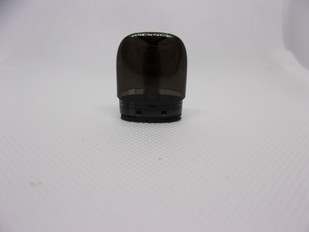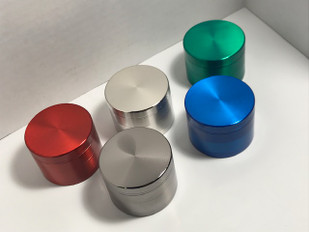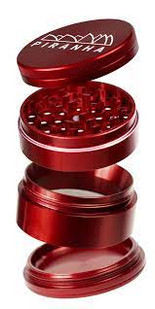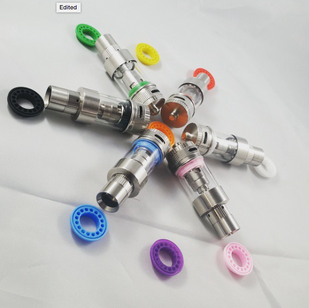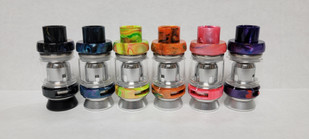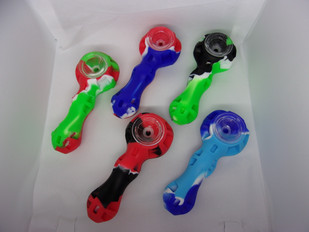- Home
- The Vape Mall Blog
- Main Differences When It Comes to Hemp and CBD Oils
Main Differences When It Comes to Hemp and CBD Oils
Posted by on

CBD is becoming an extremely popular industry, but because it’s so new, many people are still a little bit confused about how it works, what it does, where it comes from and whether or not it’s legal or safe to use. One of the biggest points of confusion is whether or not CBD oil and hemp oil are the same thing.
After all, isn’t CBD oil just concentrated hemp oil? And, doesn’t hemp oil contain CBD?
Interestingly, the answer to this question isn’t as simple as you may think. If you want to try to treat a specific ailment with CBD oil, or you wish to purchase hemp oil for a specific purpose, it’s extremely important that you understand how these two products differ. That’s why we’re here. We’re gonna thoroughly break down how these two products differ so that you can purchase the right one for your individual needs.
Aren’t Hemp and CBD Oil the Same Thing?
You would think that since CBD oil comes from the hemp plant, that it’s the same thing as hemp oil. After all, both are oils that are extracted from hemp, which is a plant belonging to the cannabis family. However, they’re actually very different from each other for one simple reason.
Hemp oil is also known as hempseed oil, and it comes from the seeds of the hemp plant. Meanwhile, CBD oil comes from the flowers of the hemp plant. That’s what makes them different in terms of their potential therapeutic properties. You see, the hemp flowers are rich in cannabinoids such as CBD. Meanwhile, the hemp plant seeds don’t contain CBD.
As you’ll see, each type of oil is useful in its own way. However, they aren’t the same in terms of their unique chemical properties, which is why you can’t just buy hemp oil when what you’re really looking for is CBD oil, and vice versa.
It’s also important to point out that both hemp oil and CBD oil are devoid of a psychoactive concentration of THC, the compound found in marijuana that makes people high. In order for a cannabis oil to get a person high, it must come from the marijuana plant rather than the hemp plant.
What’s CBD Oil?
Now, we can get into the unique properties of both CBD oil and hemp oil. CBD oil is an oil that’s extracted from the flowers of the hemp plant that are extremely rich in Phyto cannabinoids such as CBD, CBN and CBC, in addition to terpenes, which are unique chemical compounds that exist in the essential oils of plants.
CBD oil is becoming more and more popular because of its potential abilities to help with a wide range of common ailments such as migraines, arthritis, anxiety and digestive troubles. CBD is a unique plant compound in that it feeds the body’s endocannabinoid system that requires cannabinoids to help the body achieve homeostasis. Therefore, only CBD oil has the potential to help the mind and body in such a profound way.
How’s CBD Oil Made?
CBD oil is made by running the flowers and other plant material through a careful extraction process that concentrates the plant into an oil without harming its potentially beneficial chemical compounds. CBD oil is then subjected to a decarboxylation process that activates these potentially beneficial compounds.
What’s CBD Oil Used for?
CBD oil is commonly used for medicinal purposes. It can be taken internally or applied topically to treat specific ailments.
What Should I Look for When Purchasing a CBD Oil?
When purchasing CBD oil, you should look for a high-quality oil that’s free of cheap filler ingredients and impurities. Look for third-party lab results provided by the manufacturer that verify its quality, purity, concentration and terpene profile.
Is CBD Oil Legal?
Yes, CBD oil is legal as long as it comes from hemp and does not contain more than 0.3 percent THC.
Is CBD Oil Safe?
Currently, CBD is considered safe to use and consume.
What’s Hemp Oil?
Hemp oil is the cold-pressed oil derived from hemp seeds. It’s uniquely high in nutrients such as omega fatty acids, but it does not contain cannabinoids or terpenes because it comes from the seeds rather than the flowers of the hemp plant. It’s used as a dietary additive, a carrier oil and a cooking oil.
How’s Hemp Oil Made?
As we said, hemp oil comes from the cold-pressing of hemp seeds. This process helps preserve the nutritional content of the seeds.
What’s Hemp Oil Used For?
Hemp oil is frequently used in culinary applications because of its ability to act as a dietary fat that’s uniquely rich in beneficial nutrients.
What Should I Look for When Purchasing a Hemp Oil?
Hemp oil, or hempseed oil, should always be cold pressed and pure. In other words, it should contain 100 percent hemp seeds, unless it’s a specialty product that combines hempseed oil with another nutritionally beneficial ingredient.
Is Hemp Oil Legal?
Hemp oil is legal because it doesn’t contain any traces of THC, as this cannabinoid does not exist in the seeds of the hemp plant.
Is Hemp Oil Safe?
If don’t have an allergy or intolerance to hemp, hemp oil is perfectly safe to consume.
Can They Ever be Used Interchangeably?
Technically, hemp oil and CBD oil cannot be used interchangeably. Hemp oil doesn’t boast the unique potential benefits that CBD oil does. And, CBD oil is not really intended to be used as a dietary additive, although you can cook with it as long as you keep the temperature below 130 degrees.
The only thing that these two products share in common besides being derived from the same plant is the fact that they are both rich in dietary nutrients. That’s because the entire hemp plant is a good source of crucial nutrients such as amino acids and omega fatty acids. However, in terms of application, the two have completely different purposes.
For this reason, many people keep a bottle of hempseed oil as well as a bottle of CBD oil. They are both beneficial in different ways.
Different for Unique Overall Purposes
Clearly, while hemp oil and CBD oil share some things in common, they’re two entirely different products that fulfill two very different purposes. By following this guide, you’ll have a clear idea as to exactly which product is right for you. However, they are both useful in their own unique ways, so you might find that keeping both in stock at home is beneficial to you.
 Loading... Please wait...
Loading... Please wait...



